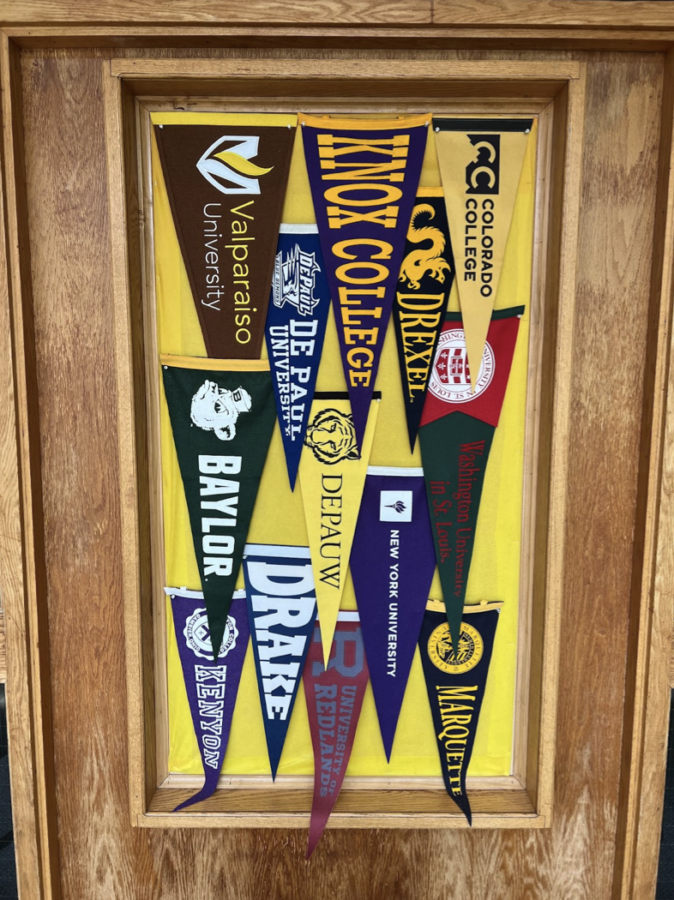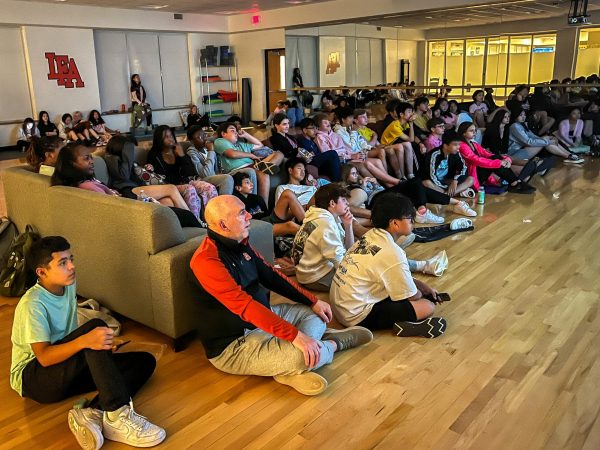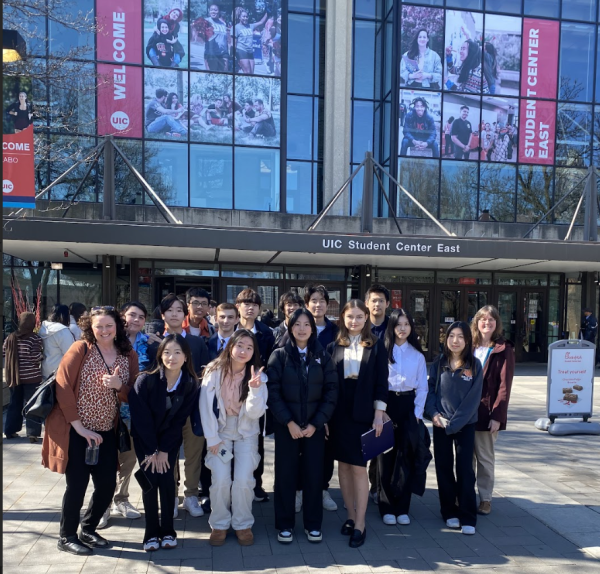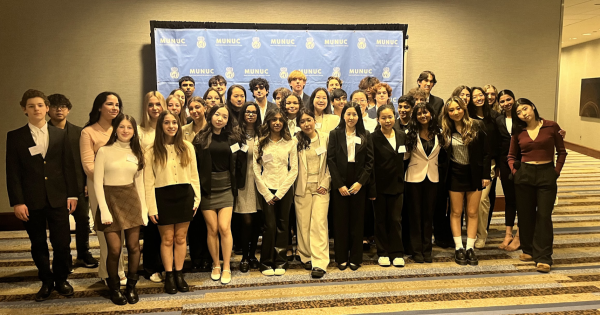The competition between students during the college process
Photo by Connor Drobny
Flags of colleges displayed outside the college counseling office.
June 2, 2022
As the years progress, the college process becomes increasingly competitive among applicants. While Lake Forest Academy continues to send students to top universities, the community is still showing symptoms of the nerve-racking college process. The LFA community preaches supporting each other but some of the culture around the college process undermines this support, so the question is what drives this competition and how do we stop it?
Some parents talk, and what they talk about is where their kids are applying. However, this gossip can stress the parents who then stress their kids by comparing applications between peers. To some parents, college admissions is a race to see whose kid is the smartest or most athletic. To students, however, it’s their future. Additionally, within both student and parent conversations, assumptions about the top students of the class or a students’ transcript are the perfect examples of misinformation that drives competition.
Another concern is the discussion of class rank, and although the college counseling office does not have a class rank system, the Head of School and Honor Roll list posted outside the Corbin bathrooms can certainly drive student competition. Students with an unweighted grade-point average above a 3.75 make it on the Head of School list. Students with an average between a 3.5 and 3.74 make it on the Honor Roll list. Not being on the lists at all or being on one rather than the other can pit students against one another.
The competition that the college process can create takes many different forms. Student lunch conversations sometimes consist of friends “one-upping” one another with who got the littlest sleep (to prove who did the most work last night), who’s pining for the most leadership positions, and even grades. It’s competition that is driven by the need to prove one kid is doing more than the other. This can sabotage the productivity and health of the class as a whole. When it comes to the number of AP’s a person should take, Andrew Poska, the Dean of College Counseling, tells students “it’s the number that doesn’t affect a students health or overwhelm them entirely”.
Students have to understand that their peers are not out to compete with them intentionally, rather all students are just scared of college rejection and this fear can drive competition and comparison. Every student is nervous so it’s important to support one another rather than take other’s fear or confidence as personal attacks.
As Poska continues to emphasize to his students, the college process is “something that’s personal where students are building lists based on their own values and priorities”. The highest ranking school isn’t necessarily the best, it’s one that has great programs for what the student wants to do.
Rather than competing with one’s peers, students should shift their efforts into continually challenging themselves (healthily of course). And remember to support your peers because in the end, we are all in this together.
















